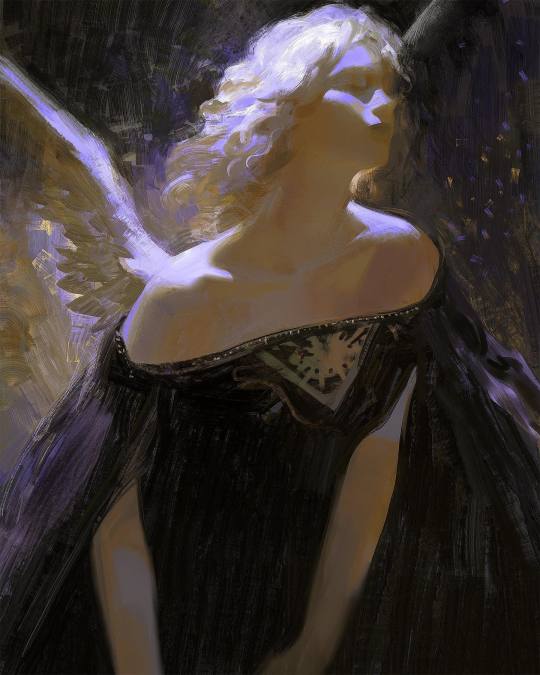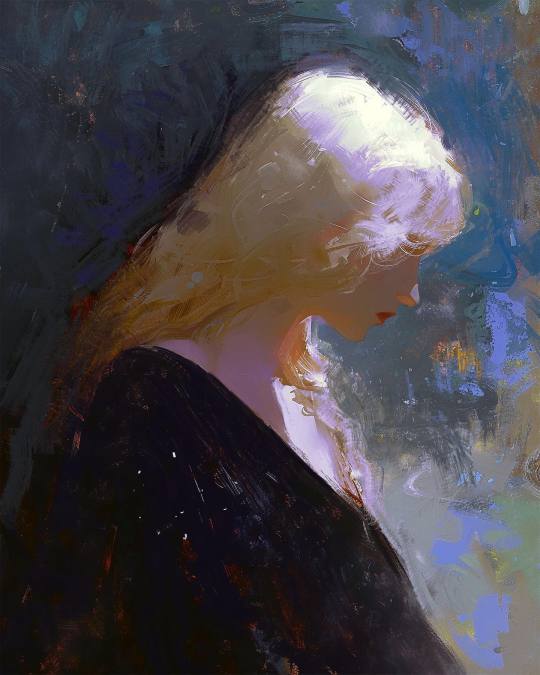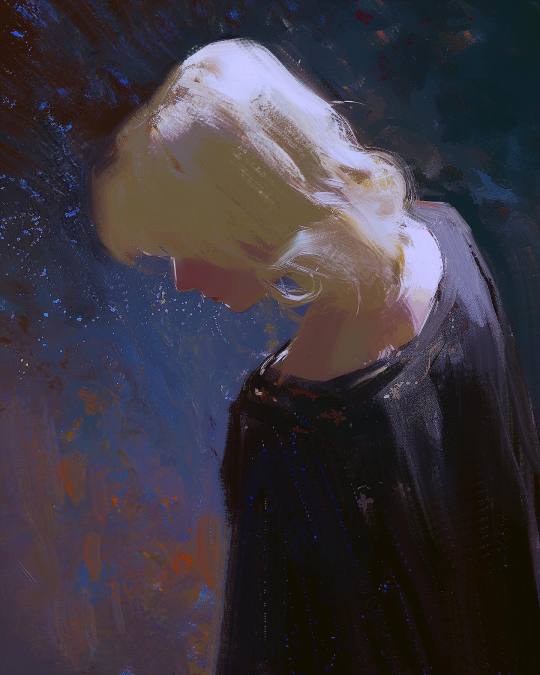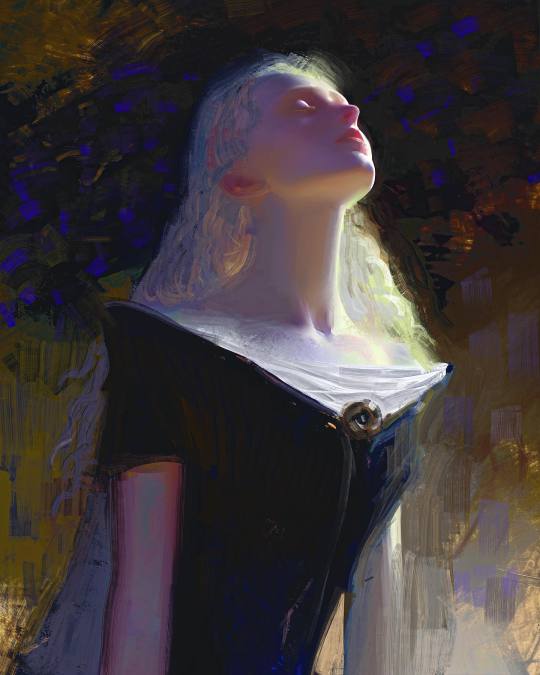Text
Concerning Juliet’s age
I find a big stumbling block that comes with teaching Romeo and Juliet is explaining Juliet’s age. Juliet is 13 - more precisely, she’s just on the cusp of turning 14. Though it’s not stated explicitly, Romeo is implied to be a teenager just a few years older than her - perhaps 15 or 16. Most people dismiss Juliet’s age by saying “that was normal back then” or “that’s just how it was.” This is fundamentally untrue, and I will explain why.
In Elizabethan England, girls could legally marry at 12 (boys at 14) but only with their father’s permission. However, it was normal for girls to marry after 18 (more commonly in early to mid twenties) and for boys to marry after 21 (more commonly in mid to late twenties). But at 14, a girl could legally marry without papa’s consent. Of course, in doing so she ran the risk of being disowned and left destitute, which is why it was so critical for a young man to obtain the father’s goodwill and permission first. Therein lies the reason why we are repeatedly told that Juliet is about to turn 14 in under 2 weeks. This was a critical turning point in her life.
In modern terms, this would be the equivalent of the law in many countries which states children can marry at 16 with their parents’ permission, or at 18 to whomever they choose - but we see it as pretty weird if someone marries at 16. They’re still a kid, we think to ourselves - why would their parents agree to this?
This is exactly the attitude we should take when we look at Romeo and Juliet’s clandestine marriage. Today it would be like two 16 year olds marrying in secret. This is NOT normal and would NOT have been received without a raised eyebrow from the audience. Modern audiences AND Elizabethan audiences both look at this and think THEY. ARE. KIDS.
Critically, it is also not normal for fathers to force daughters into marriage at this time. Lord Capulet initially makes a point of telling Juliet’s suitor Paris that “my will to her consent is but a part.” He tells Paris he wants to wait a few years before he lets Juliet marry, and informs him to woo her in the meantime. Obtaining the lady’s consent was of CRITICAL importance. It’s why so many of Shakespeare’s plays have such dazzling, well-matched lovers in them, and why men who try to force daughters to marry against their will seldom prosper. You had to let the lady make her own choice. Why?
Put simply, for her health. It was considered a scientific fact that a woman’s health was largely, if not solely, dependant on her womb. Once she reached menarche in her teenage years, it was important to see her fitted with a compatible sexual partner. (For aristocratic girls, who were healthier and enjoyed better diets, menarche generally occurred in the early teens rather than the later teens, as was more normal at the time). The womb was thought to need heat, pleasure, and conception if the woman was to flourish. Catholics might consider virginity a fit state for women, but the reformed English church thought it was borderline unhealthy - sex and marriage was sometimes even prescribed as a medical treatment. A neglected wife or widow could become sick from lack of (pleasurable) sex. Marrying an unfit sexual partner or an older man threatened to put a girl’s health at risk. An unsatisfied woman, made ill by her womb as a result - was a threat to the family unit and the stability of society as a whole. A satisfying sex life with a good husband meant a womb that had the heat it needed to thrive, and by extension a happy and healthy woman.
In Shakespeare’s plays, sexual compatibility between lovers manifests on the stage in wordplay. In Much Ado About Nothing, sparks fly as Benedick and Beatrice quarrel and banter, in comparison to the silence that pervades the relationship between Hero and Claudio, which sours very quickly. Compare to R+J - Lord Capulet tells Paris to woo Juliet, but the two do not communicate. But when Romeo and Juliet meet, their first speech takes the form of a sonnet. They might be young and foolish, but they are in love. Their speech betrays it.
Juliet, on the cusp of 14, would have been recognised as a girl who had reached a legal and biological turning point. Her sexual awakening was upon her, though she cares very little about marriage until she meets the man she loves. They talk, and he wins her wholehearted, unambiguous and enthusiastic consent - all excellent grounds for a relationship, if only she weren’t so young.
When Tybalt dies and Romeo is banished, Lord Capulet undergoes a monstrous change from doting father to tyrannical patriarch. Juilet’s consent has to take a back seat to the issue of securing the Capulet house. He needs to win back the prince’s favour and stabilise his family after the murder of his nephew. Juliet’s marriage to Paris is the best way to make that happen. Fathers didn’t ordinarily throw their daughters around the room to make them marry. Among the nobility, it was sometimes a sad fact that girls were simply expected to agree with their fathers’ choices. They might be coerced with threats of being disowned. But for the VAST majority of people in England - basically everyone non-aristocratic - the idea of forcing a daughter that young to marry would have been received with disgust. And even among the nobility it was only used as a last resort, when the welfare of the family was at stake. Note that aristocratic boys were often in the same position, and would also be coerced into advantageous marriages for the good of the family.
tl;dr:
Q. Was it normal for girls to marry at 13?
A. Hell no!
Q. Was it legal for girls to marry at 13?
A. Not without dad’s consent - Friar Lawrence performs this dodgy ceremony only because he believes it might bring peace between the houses.
Q. Was it normal for fathers to force girls into marriage?
A. Not at this time in England. In noble families, daughters were expected to conform to their parents wishes, but a girl’s consent was encouraged, and the importance of compatibility was recognised.
Q. How should we explain Juliet’s age in modern terms?
A. A modern Juliet would be a 17 year old girl who’s close to turning 18. We all agree that girls should marry whomever they love, but not at 17, right? We’d say she’s still a kid and needs to wait a bit before rushing into this marriage. We acknowledge that she’d be experiencing her sexual awakening, but marrying at this age is odd - she’s still a child and legally neither her nor Romeo should be marrying without parental permission.
Q. Would Elizabethans have seen Juliet as a child?
A. YES. The force of this tragedy comes from the youth of the lovers. The Montagues and Capulets have created such a hateful, violent and dangerous world for their kids to grow up in that the pangs of teenage passion are enough to destroy the future of their houses. Something as simple as two kids falling in love is enough to lead to tragedy. That is the crux of the story and it should not be glossed over - Shakespeare made Juliet 13 going on 14 for a reason.
58K notes
·
View notes
Text
love that xie lian canonically gets jealous like he was so sullen and gloomy every time hua cheng brought up his special someone and he literally threw himself in front of hua cheng’s sweaty shirtless torso cause the idea of someone else seeing even an inch of his man half-naked had him stressed as hell ... i truly feel that xie lian is the possessive one cause while we all know hua cheng is protective and will hold a centuries-long grudge, i feel like he would never dare to lay claim to xl whereas xl is like mine mine mine, this ghost is mine!!! and if someone else touches him i'll throw up and dig a hole to die in!!
5K notes
·
View notes
Text
what makes me rlly sad is while thorn lived with berenilde she gives him the watch so he isn’t bored. just knowing that her children’s rooms are forever frozen in time filled with toys and all the luxuries a child would want and she gives her second chance at being a good mother a watch to curve his boredom. what’s worse is that she doesn’t even view him as her second chance but thorn does. thorn sees her as a way to make a mother happy with him but berenilde never saw him that way and that’s why he’s so upset over berenilde having another child. it just confirms to him that he’s never enough. he says it himself in the last book.
also, we never really get the full reason as to why thorn hates archibald so much until the last book when we learn that thorn’s mother use to shower archibald with all the attention that thorn craved. thorn seeing berenilde become close with archibald and have a relationship with him probably sent thorn over the edge. although it’s clearly states that thorn’s goal in the series is to find out who god is, i think that he also really strived for a noble title because he thought that would make berenilde see him as enough.
of course, i also think berenilde loved thorn in her own way but the environment they lived in didn’t allow her to fully show any affection towards him.
thoughts and opinions are appreciated!
51 notes
·
View notes
Photo

Cudjo Lewis, the last surviving captive of the last slave ship to bring Africans to the U.S.
https://www.history.com/news/zora-neale-hurston-barracoon-slave-clotilda-survivor?utm_campaign=Echobox&utm_medium=Social&utm_source=Twitter#link_time=1525373347
156K notes
·
View notes
Text
this is what it means to be human
Everything, Mary Oliver
The Breathing, Denise Levertov
A Prayer by Antoine de Saint-Exupéry
The Laughing Heart by Charles Bukowski
Like a Small Café, That’s Love by Mahmoud Darwish (translated by Mohammad Shaheen)
Having a Coke with You by Frank O’Hara
Eating Together by Li-Young Lee
The Orange by Wendy Cope
The Quiet Machine, Ada Limón
To Go Mad, Paruyr Sevak
Our Beautiful Life When It’s Filled with Shrieks by Christopher Citro
Hammond B3 Organ Cistern, Gabrielle Calvocoressi
Peace XVIII, Khalil Gibran
Your Unripe Love, Paruyr Sevak (from “Anthology of Armenian poetry")
Here and Now by Peter Balakian
Ich finde dich (I find you) by Rainer Maria Rilke
The Thing Is by Ellen Bass
One Art by Elizabeth Bishop
Miss you. Would like to take a walk with you. by Gabrielle Calvocoressi
I Want to Write Something So Simply by Mary Oliver
What's Not to Love by Brendan Constantine
Where does such tenderness come from? by Marina Tsvetaeva
You Are Tired (I Think) by E. E. Cummings
Living With the News by W.S.Merwin
What the Living Do by Marie Howe
14K notes
·
View notes
Text
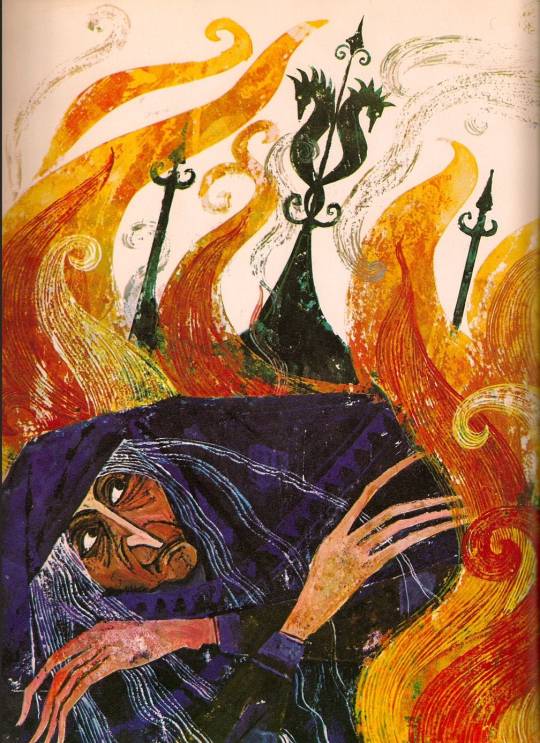
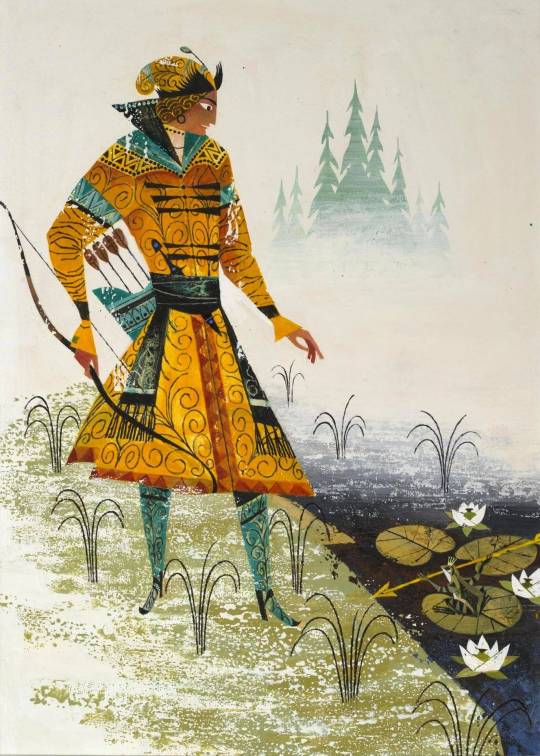
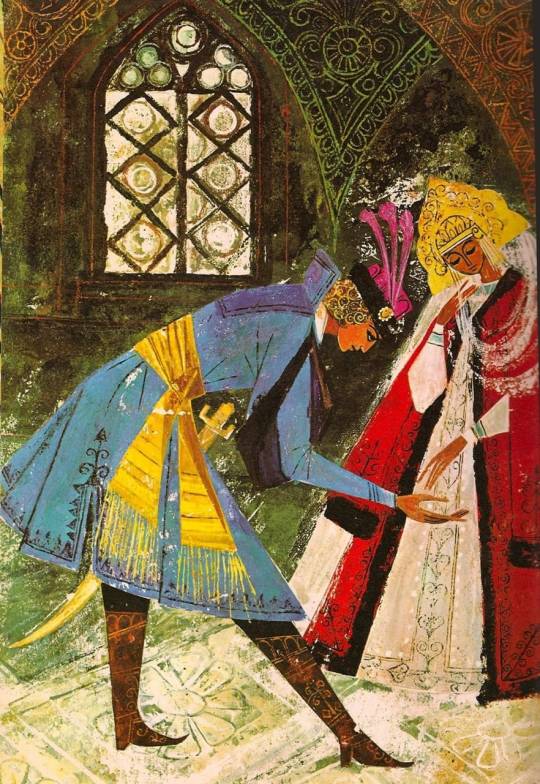
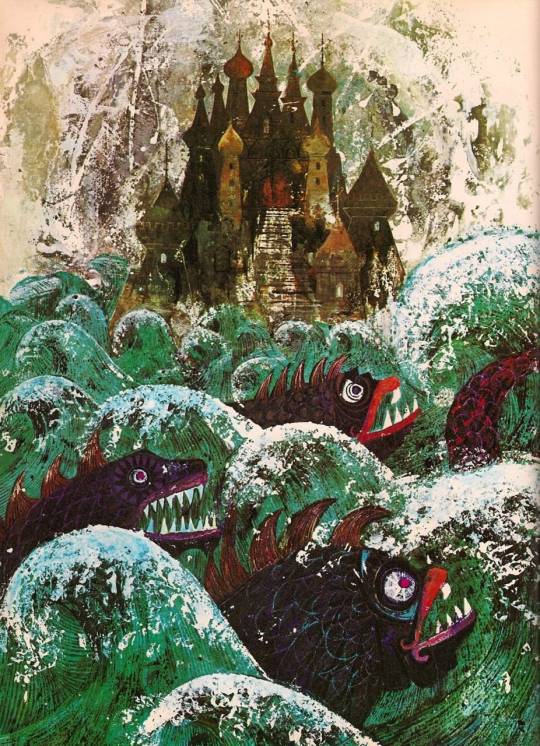
Krystyna Turska (1933-2002), illustrator of myths and fairy tales.
4K notes
·
View notes
Text





the kanthony nod
4K notes
·
View notes
Text
berenilde: I'm in love with farouk.
berenilde: any thoughts?
thorn: and prayers.
141 notes
·
View notes
Text
The concept of incest in Anima is very interesting to me.
Obviously they must be a bit more relaxed than us about what is considered incest, given that they refer to each other as cousin. I don’t think that marrying each other presents any genetic problems since there’s about 8 or 9 generations between Ophelia and Artemis (and I’m assuming this length of time allows the cousins to be distant enough that it’s not a problem). Still, conceptually, this society is totally ok with marrying people they consider cousins.
They have a register of “consanguinity exemptions”, so the concept of incest does exist and there seems to be a not-so-strict line that they shouldn’t cross. I’d love to know what this line is (siblings? direct cousins?) and under what circumstances they decide that incest is ok.
#also how do these concepts extend to other arks#do they have the same cultural understandings of incest?#I imagine not bc even just the concept of family changes drastically between anima and the pole#la passe miroir#lpm#the mirror visitor#ispeak
50 notes
·
View notes
Text
SPOILERS FOR STORM OF ECHOES
Archibald’s illness is probably one of the more confusing and overlooked aspects of the final book for me? I can’t figure out what the purpose of bringing it up was, given that it’s just brought up vaguely twice and we never actually see him struggle or die. Anyone have any ideas on its function within the narrative? Bc I can’t think of anything other than being used for shock value.
#lpm#la passe miroir#I feel like Dabos threw a lot at that book but most of it u can at least attempt to justify#this point tho…what do I do with it#ispeak
13 notes
·
View notes
Text
Does anyone ever talk about how Thorn worried Berenilde wouldn’t care about him anymore because she’s a mother now and has Victoria but the first thing she says to Ophelia when they meet again is “where’s Thorn?” because I do and I cry
#lpm#and the way he carried that belief with him throughout book 4 when he said that he had never been enough for berenilde#him asking ophelia if he would be enough for her :(((((((#I would love to see a novella or smth focused on thorns life growing up on the pole#and how much of it was upturned by ophelia#la passe miroir
89 notes
·
View notes
Text
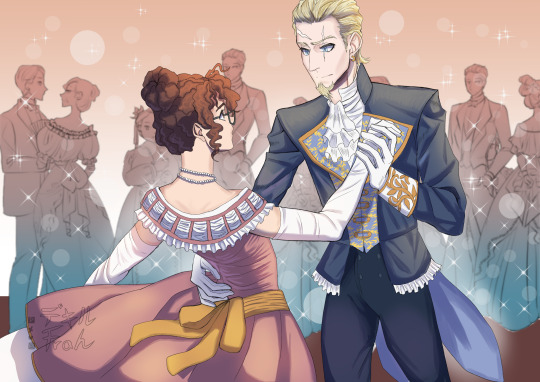
They're not the kind of couple who would have a dancing scene, but I wanted to see them be awkward anyway
134 notes
·
View notes
Text
there is something cruel about the fact that peeta would have been able to maintain his ideal to not let the capitol turn him into something he was not if it weren’t for love. if he didn’t love katniss so much that he would sacrifice for her in such selfless ways that inspired her to finally actualize the love that was brewing quietly under her cool surface. if peeta was not loved, as he truly believed he was, the capitol would have never tried to change him. they would have just killed him off. because snow’s fight was never with peeta. it was only with katniss.
but snow saw love in katniss reaction to peeta’s death and her confession on the beach. and love is something that is dangerous in a place like panem. something dangerous in the hands of a man who never really understood it except for as a naive vice.
#smth smth being who he was ultimately led to him losing himself#and to preserve himself he would’ve had to lose himself anyway#his fate was set etc etc#thg
410 notes
·
View notes
Text
All of these points!!
Plus Stephanie hinted at a lot of things that were just never brought up again. Like, who was the librarian? Why were there entire scenes focusing on knightlinger when he never ended up being important at all? Why did we rush all of apollos development in the last book when u had two other books where you could’ve worked in this info!!
There’s just so many structural problems, and I think most of them are the result of Stephanie not really know where she wanted these plots or characters to go. I wish she had taken a bit longer to really come up with a strong ending
acftl review (finally)
I give it a 3 ⭐️ (as much as it pains me) even then it’s only this high bc I love evajacks so much
so I was finally able to gather my thoughts into one post and while there were many things I enjoyed a few others didn’t sit right..
1. the whole story curse thing.. it makes sense that the story curse would twist things which is why some things were left unexplained but it doesn’t feel like it was done deliberately?? it just felt like stephanie genuinely didn’t know how to tie some things together.. like sure not every single thing needs an explanation but she emphasised certain things wayyy too much in the first two books for them to be completely ignored for example evajacks talking to each other in their minds. Even the broken heart scar wasn’t addressed again after like halfway through acftl
2. too much apollo.. sorry this is not even just me being biased or whatever like I do agree his pov helped explain the plot from a different perspective but he got wayyy more of a backstory and a conclusion to his character than jacks for a someone that wasn’t as present in the last 2 books.. and this was supposed to be jacks’ series kinda (ik it was evangelines too) but I feel like jacks got sidelined hard and that’s disappointing. It also didn’t help that whenever there was an intense scene between evajacks the pov would switch to apollo.. to be fair I think having 3 povs was just hard to execute in general
3. the kiss scene.. usually it would not be a big deal but it’s a big part of jacks character that he can’t kiss girls without killing them idk I thought him finally getting to kiss evangeline would be a lot more… grand? they barely got a page or any detail and then the next chapter was “once upon a time there was kissing and more kissing 🥰🥰” which was even more underwhelming. Even apollo and evangelines kiss scenes were longer and more detailed and they got multiple
4. the overall vibe of the 3rd book felt very different to the first two I couldn’t put my finger on it at first but I feel like it had something to do with the writing.. at some parts it felt familiar (like all the descriptions and the fairytale aspects) but others it just felt different?
5. during too many scenes it just felt like stephanie was rewriting tbona.. like I haven’t really seen anyone say this yet but a good chunk of the book was quotes from tbona which I feel took up a lot of unnecessary space and could’ve been used to develop other things or characters? Literally someone that hasn’t read tbona could get a gist of what happened cause it’s all summarised in there 😭
6. the plot in general.. contrary to popular belief I don’t think this was that romance focused (as people claim as to why things weren’t explained) because I think stephanie incorporated more plot in here but it was just different to what we saw in the last books because previous characters (luc, marisol, tiberius, kristof) weren’t as present in this book and new characters plots and explanations were just thrown in.. not much felt connected
I definitely have more to add but for now my main takeaway is that while tbona was very hard to top I feel like acftl could’ve been so much more especially since it was set up so well.. I think so many people are disappointed because it doesn’t hold up as well for the last book in a series but I’m just glad evajacks got their happy ending 🫠
74 notes
·
View notes
Text
All of this is incredible analysis and you have given me so much to chew on !!
To the point of Thorn tho: I really love the idea of thorn both as a god and as Ophelia’s reflection (so he’s sort of symbolically the other and god at once????) because he the catalyst both for the events of the series and for a lot of Ophelia’s self discovery. He’s the one who brings ophelia to the pole, he introduces her to the events surrounding god and the idea of the dice, and she goes through a lot of growth and self discovery in attempting to understand and build a relationship with him.
The idea of them being reflections of each other is also really well exemplified, I think, in the scene where ophelia attacks Lazarus with her claws. Where previously it was Thorn using his claws out of self defense and defense of ophelia, while ophelia sort of just look on astonished, it’s now ophelia who chooses to commit violence as a defense for the autonomy stolen from her and thorn.
PLUS ophelia does, in some ways, reflect or reverse thorns perception of claws (and therefore of himself) and how they can be wielded for him rather than against him. He spends his life disgusting with his claws and with himself because he has only seen the claws as weapons, and their inherent violent nature has always been turned against him. But then ophelia is the first person to use these claws not only to defend him, but to comfort him, which basically upends everything we knew about the functionality of claws.
More Semi-coherent Mirror Visitor Quartet Thoughts
Thinking about how The Mirror Visitor sets up some premises and genres in Books 1 & 2 and then proceeds to smash them (on purpose) in Books 3 & 4, and that's a thematic point.
Gail tells Ophelia not to compromise herself in Citaceleste, but Ophelia's identity morphs so much in Books 3 & 4. She's horrified by Dragon's Claws, but uses them on Lazarus. She thought it deserved when she gave that bullet to the guy in the museum in Book 1, but by Book 4 she's like 'wtf younger me'. She tells the reader she values her tranquility in Book 1 but by Book 4 she's very much the one following threads, no matter how dangerous, down rabbit holes & tiptoe-ing the line of being an 'undesirable' in Babel.
And like, whether you think Ophelia's change is an evolution or a devolution, I think it's a notable change that's done on purpose?
On the surface 'to never change, to be steadfast in yourself' seems such a noble thing, but like....
To be Unchanging is to also be ungrowing - and that's what God wanted, what he imposed upon the Family Spirits and the world. Nothing changes without his express consent.
Which is very much like how a creator makes stuff in their works, they are the 'God' of the world they make, but also it's very interesting to me how this wider concept is applied to Ophelia in a microcosm.
How much of yourself do you get to dictate?
As much as Books 3 & 4 (what I consider the verso half of the series) shatter the premises and genres set up in Books 1 & 2, Ophelia herself breaks the preconceptions she held about the people and world around her, and even of herself.
IMO, by the end it's left unclear whether Ophelia was ever truly herself - we do not know how much of her is Eulalia, how much of her is original Ophelia.
For example, take the question: 'Is Ophelia smart?'
Book 1 Ophelia comments about the books in the library being too cerebral for her ('There were only scholarly tomes in this library, and she understood not a single word.'), but in Book 4 she's almost an Aspiring Virtuoso.
Is this because Ophelia has always considered herself not super scholarly, but actually is/has the potential to be? Is it solely Eulalia's influence? No idea, and the book won't answer you on it.
To me, it's like it's asking 'how much of yourself do you get to dictate'? Are you, in some way, your own God? Because Eulalia is also 'God' in a fashion, and imo, by extension so is Ophelia. By deciding to change themselves, they change the world. And they both get the ability to do what they did by generating an echo - a distortion of their self.
Ophelia and Eulalia both literally and figuratively take the role of 'God' - both externally in literally Rupturing/Unrupturing the world, and internally by changing their points-of-view, their perceptions of how the world is.
This post will get too long, but I'm also thinking about how the maternal/paternal 'God' figure is a thing in this series, and there's something to be said about how they tie in with the characters (though I think I should ponder it a bit more).
Books 1 & 2 have Anima and the Pole:
Anima is very much 'Maternal Hierarchy', their family spirit is a 'maternal God'. The Pole is the opposite with its 'Paternal Hierarchy', with their family spirit as a 'paternal God' (but Odin is also 'the child' lol).
Two separate, opposite structures.
Books 3 & 4 have Babel and LandmArk:
Babel has both a 'paternal & maternal god' in Pollux & Helen, though there is an apparent imbalance given Helen is actually infertile. On the other hand, we have LandmArk, where its family spirit is described as being a blend of both man & woman.
One Ark has the 'maternal and paternal' Family Spirits distinct &, though supposedly 'equal'... aren't. And the other has them literally two-in-one. Janus is also the one that gets literally cleaved by The Other/God as well. In the center of Babel, y'know, like the parable of the Tower of Babel, where God kept humans apart so they couldn't challenge him. Hm. Hm.
Why does it matter?
I don't fully know lol. I just know it's interesting, and that perhaps it's got something to do with the characters and 'Godhood' as it plays out in the story. (And like, Adam & Eve even, since there's a thread there of 'parenthood' being tied in with 'godhood' too).
Like, Lazarus is somewhat of a paternal God figure, but he needs the Horn of Plenty to do it. He is also looking for Ophelia to join forces with her, whom as I mentioned earlier, is sort of like Eulalia/'maternal god'.
The Other is clearly male (or at least, the EN translation clearly indicates him as male. I'm curious if that's something the original French does - someone who's read it in the original French please enlighten me!)
And... this might be a strange thought but.... Thorn is also male.
I mention Thorn, because not only is it both him & Ophelia who change the world together, he is also a character who is determined to change the terms for humanity as a whole (just like Eulalia when she sought to save the world) by giving them back their dice. Like Eulalia, Thorn changes the Pole. Does it together with Ophelia, actually, because while Thorn's efforts makes the status quo between the Powerless, the Fallen and the Court change, Ophelia also plays a role by saving Fox and helping Farouk remember. Without the both of them together the Powerless of the Pole would not have been in a position to push for better conditions. It is Thorn who 'undoes' what The Other does to Victoria - The Other gives Victoria a negative view of her identity, which leads to Vitoria getting stuck in that well in the Reverse, and Thorn undoes this by returning her to Berenilde.
And it is Thorn who is implied to be on the other side of the mirror reflecting Ophelia at the end of Book 4.
Who would give Thorn his dice back?
"Us," said Ophelia. "You and me."
Ophelia appears to be talking to her reflection in this scene, but really, she's talking to Thorn. "Forgot herself, as she did when reading an object. The final reading of them all." + "She plunged into her reflection." -> and then we get Thorn's signature line.
It's Thorn. Thorn is her reflection. Thorn too is a bit of a 'god'.
#I. have so much more to say and ur analysis has given me a lot of perspectives that I never previously considered#but what I’ll say for now is I think it’s incredible that no matter how many times you reread this series#there’s always something new to be found and some new angle to consider#sometimes I remember that this is Dabos’s DEBUT series and I’m absolutely floored#lpm#the mirror visitor#la passe miroir#ispeak
19 notes
·
View notes
Note
Hello!
Would you mind if I asked you to confirm some things, since you've read the Mirror Visitor Quartet in its original French? I've been thinking about the 'maternal/paternal God' themes and was wondering if in the original French, The Other is gendered as male, as he is in the English translation? And also, whether on that scene on the wall where Ophelia is talking to Agatha, whether they refer to their mother in the equivalent French term of 'mommy', or is it something else?
Thank you in advance!
The Other IS referred to as male -- I think it's pretty!! Significant! That both the Other and God, as personas/facets of Eulalie, are referred to in the male... There's something fascinating to me about the way this book is discussing (the failure and absence of) motherhood, though I never quite manage to articulate it... It's very compelling! I'd love to hear your thoughts on the topic if you have any! But there is something about the repetition of this theme in: Berenilde's motherhood issues, Roseline who's infertile, Ophelie who's also infertile, Eulalie who's... infertile... The whole state of Anima which is run by the driest mother figures you can imagine, Artemis included...
Paralleled with the characters who seem to be dealing with their own mother issues, from the perspective of children: Thorn, Octavio, Elizabeth, Farouk --- and ofc Ophelie herself...
Back to the Other, isn't it kind of interesting that the one child who manages to escape him is gender-fluid Janus? I wonder if that's gonna jump out to me in some way when I reread book 4, I can't wait!
106 notes
·
View notes
